94-96 The Recordings by Fapy Lafertin and Lejazz
TRACKLIST & AUDIO
SWING GUITARS 1994
1. I’ve had my moments 2. I wonder where my baby is tonight 3. Besame mucho 4. Vous qui passez sans me voir 5. Swing guitars 6. Je suis seul ce soir 7. Puttin’ on the Ritz 8. To each his own 9. Diminishing 10. Minor swing 11. La Defense 12. Que reste t’il de nos amours 13. Swing guitars 14. Anouman 15. Puttin’ on the Ritz 16. Je suis seul ce soir 17. I’ve had my moments 18. Minor swing 19. Anouman ‘live’
HUNGARIA 1996
1. Melancholy baby 2. 12th year 3. Songe D’Automne 4. Time on my hands 5. Billet doux 6. Russian lullaby 7. Stardust 8. Hungaria 9. Liebestraum No3 10. Swing 42 11. Stockholm 12. Notes noir 13. What a difference a day made 14. Viper’s dream 15. Black and white 16. J’attendrai 17. Loverman 18. What a difference a day made
YOUTUBE PLAYLIST
https://www.sintimusic.nl/artists/fapy-lafertin/
PRESS
BOB WILBUR USA
VINTAGE GUITAR MAGAZINE USA
ETUDES TZIGANE FRANCE
GUITAR TECHNIQUE USA
REVIEWS
SYNCOPATED TIMES US 28.09.2020
Fapy Lafertin 94-96 Recordings
There are so many guitarists in Europe currently playing in the Django Reinhardt style that there are always new talents to discover. Guitarist Fapy Lafertin, who was born in Belgium in 1950 and began recording in 1976, is far from a newcomer but he has probably been overlooked by some followers of the Gypsy Jazz movement.
Part of a gypsy family, Lafertin began playing the guitar when he was five, performed early on in a family band, and worked with the Piotto Limberger Orchestra. Lafertin was playing the Django repertoire from the start and along the way he has made records with Waso (a quartet with Koen De Cauter on clarinet and tenor), Art Hodes (1987), and Evan Christopher (2019), also performing with Dick Hyman, Stephane Grappelli, Scott Hamilton, Milt Hinton, and Benny Waters among others.
The double-CD 94-96 The Recordings reissues in full two of the guitarist’s most rewarding recordings as a leader (1994’s Swing Guitars and 1996’s Hungaria) augmented by eight previously unreleased selections. Lafertin is joined by Dave Kelbie and Pete Finch on rhythm guitars, violinist Seve Elsworth, and bassist Tony Bevir. Clarinetist Bob Wilber guests on three selections during the Hungaria sessions.
Lafertin and violinist Elsworth take many worthy solos in the Reinhardt/Grappelli tradition and the rhythm section keeps the music swinging. Particularly noteworthy is the sound of this twofer. The group was recorded on both occasions with just a single vintage microphone that dates from around 1938. That is how the original Quintet of the Hot Club of France recorded in the 1930s and the result is that Lafertin’s ensemble sounds very close to Reinhardt’s group. It certainly does not sound as if it were recorded 60 years later, either musically or technically.
These two sessions, as separate CDs, were the first releases put out by the Lejazzetal label. As 94-96 The Recordings it is very good to have them available again, to hear this classic music (standards, Reinhardt originals and French songs), and to experience the frequently brilliant playing of Fapy Lafertin.
SCOTT YANOW
FRANCE MUSIQUE FRANCE 24.05.2016
Parution de « Le Jazz, 94-96 Recordings » de Fapy Lafertin chez Frémeaux
Publiés en 1994 et 1996, voici deux enregistrements devenus légendaires qui portent le double estampillage de disques rares et majeurs du courant qu’ils incarnent avec perfection. L’esprit de Django Reinhardt guide le jeu de Fapy Lafertin, ses chorus d’une élégance et précision rares, son impulsion rythmique incomparable qui font de lui un continuateur plus qu’un simple héritier du maître.
Ressortie en 2012 par Lejazzetal cette version augmentée et remasterisée présente « Swing Guitar » et « Hungaria », enregistrés dans les conditions d’avant guerre (prise directe en cercle autour d’un micro des années 1930), dans une production signée Dave Kelbie, figure incontournable, guitariste iconoclaste et sans doute plus grand producteur du genre (Evan Christopher’s Django à la Créole, Tcha Limberger,…).
ALEX DUTILH
JAZZ MAGAZINE FRANCE 28.04.2016
CD ALBUM – Lafertin Le Jazz 94-96 The Recordings Swing Guitars et Hungaria
Avec « 94-96, The Recordings », Frémeaux réédite sous licence les enregistrements réalisés par Fapy Lafertin en Angleterre pour le compte de Lejazzetal en 1994 et 1996, avec le violoniste Steve Elsworth et une rythmique en or – Dave Kelbie, Pete Finch (g), Tony Bevir (b) – pour le dessein qu’ils se sont fixé, réincarner l’esprit du Quintette du Hot Club de France et enregistrer avec les techniques de l’époque. Certes on préférera les originaux, mais nos compères sont dignes de leur sujet, auquel s’associe sur trois morceaux le fameux Bob Wilber (cl).
ALFRED SORDOILLET
JAZZHOT FRANCE 01.04.2016
CD ALBUM – Lafertin Le Jazz 94-96 The Recordings Swing Guitars et Hungaria
Ces deux enregistrements, partiellement inédits (des prises d’autres thèmes déjà présents et deux thèmes supplémentaires), réalisés dans les conditions d’époque, comparables à celles des enregistrements effectués par Django Reinhardt, Stéphane Grappelli et le Quintette du Hot Club de France, avec des micros de la BBC d’avant-guerre, dans une grange du nord de l’Angleterre, voulaient restituer, au milieu des années 1990, la magie sonore du plus célèbre quintette à cordes de l’histoire du jazz. Cette ambition a été pleinement justifiée par la réussite de ces deux disques de 1994 et 1996 réunis ici, car outre la technique du son, le studio à l’ancienne, il y a une belle formation avec le grand Fapy Lafertin, l’un des très rares guitaristes qui a hérité de l’épaisseur, de l’intensité expressive du grand Django. Fapy Lafertin possède également une musicalité, un lyrisme dignes de son illustre devancier. La formation qui l’accompagne est au diapason de Fapy, et dans l’esprit du fameux Quintette, avec la puissance de trois guitares associées, et en particulier un beau violoniste en la personne de Steve Elsworth.
Le répertoire fait non seulement appel aux classiques du genre («Minor Swing», «Viper’s Dream», «J’attendrai»…), des compositions que le Quintette du HCF illustra, mais aussi à la chanson française et populaire («Besame Mucho», «Vous qui passez sans me voir», «Je suis seul ce soir»…), aux standards («Stardust», «Russian Lullaby», «Loverman», «What a Difference a Day Made»…), car c’est dans ce cadre large, jazz, standards et chanson française jazzy (Trenet, Sablon…) que s’épanouit le talent de Django, faut-il le rappeler? On trouve également «Anouman» auquel le lyrisme de Fapy donne une dimension particulière, car joué avec une manière plus ancienne, plus Django acoustique d’avant-guerre, que celle à laquelle on est habitué. Il y a aussi chez Fapy Lafertin le côté sombre de la tradition tzigane, celle que Django conserva dans son jazz comme une couleur essentielle de sa tradition, qui donne une intensité particulière, comme une patine, à ces enregistrements. Le beau soutien de deux guitares, le côté chantant du violoniste, les commentaires, les harmonies sombres propres à l’entre-deux-guerre («Stockholm»), les puissants vibratos-crescendos chers à Django, tout donne à cet enregistrement nouveau et différent, une tonalité pourtant proche de l’original, et cela pour notre plus grand plaisir. Il y a enfin chez Fapy Lafertin, cette manière de poser la note, de développer le contre-chant, de commenter, d’attaquer la note qui font irrésistiblement penser à l’illustre modèle («Stardust»). Une féérie guitaristique! Sur trois thèmes, l’incomparable Bob Wilber, toujours présent dans les meilleurs groupes, apporte son oreille et son sens musical qui lui permettent de jouer avec des musiciens de tous les horizons avec naturel, en magnifiant le résultat comme ce «Songe d’automne», «Stockholm». Il y a encore ces valses manouches, incomparables comme un monde nouveau qui s’éveille, une composition splendide de Fapy Lafertin («Notes noir») qui vous emporte dans ses tourbillons de notes et dans sa manière de faire rouler les notes.
Fapy Lafertin est un indispensable de la tradition de Django Reinhardt, un de ceux dont on ne peut se passer, en disque ou en live, si on a la musique de Django chevillée à l’âme, ce qui est forcément le cas à Jazz Hot. Du très grand Art!
YVES SPORTIS
THE WORLD MUSIC REPORT USA 11.02.2013
the next best thing to making history must surely be recording it.
The record is also one of the finest in a continuing series of homages to the Manouche sound that was glorified by Mr. Reinhardt and his alter ego, the violinist Stephane Grappelli. It is, as the cover reveals, a re-mastered edition of two early recordings produced by one of the most dedicated ethnomusicologists and guitarists in Europe—perhaps in the world—the admirable, Dave Kelbie. In fact, Swing Guitars CD 1 in this package was the first release on the Lejazzetal imprint, which has grown into one of the most important and certainly one of the most exciting labels in Europe. And it is thanks almost entirely to Mr. Kelbie and his indefatigable energy, which he uses to preserve the endangered art of Manouche swing music from all over Europe, including the sublime work of the Belgian, Tcha Limberger and the heir to Mr. Reinhardt’s style of unamplified guitar, Mr. Lafertin. Mr. Kelbie has also done something else remarkable and that is to meticulously recreate in recordings the preservation of authentic and utterly “live sound”. Working with extraordinary acoustic engineer Lance Andrews—who was responsible for these original recordings—Mr. Kelbie created that remarkable sound in a barn. For this re-issue, Mr. Kelbie took the original tapes and, with the infinitely talented Dylan Fowler, re-mastered them at the legendary Stiwdio Felin Fach in Abergavnney, Wales.
But this is about Fapy Lafertin and the historic recordings that as majestic for their music as they are for their sound. His virtuosity is untrammelled and it appears to matter not that he is human, capable of any frailty whatsoever. When he plays Nature seems to stop and listen. His lines are sensuous and this comes from the fact that his left hand caresses the neck of his guitar; the fingers of that hand glide along frets and neck in mighty glissandos that produce notes and chords, while the fingers of his right hand make love to the strings one glorious note after the other. His soli have soaring melodic sojourns and leap off the plane from whence the music originates into a vortex that returns the spectacular energy of his playing with musical colours and textures that make Nature blush as if it were her that Mr. Lafertin was making love to. Notes flow in wide and swishing arcs, belying the linear source of the melody. Sometimes Mr. Lafertin might begin a line from somewhere in the middle of the original melody, creating a new musical tributary of the river of sound that produced the original song; at other times he might turn the melody on its head and literally play it almost back to front. His interpretations of songs are always exciting, meticulously executed and full of surprises.
Fapy Lafertin’s voice is elementally different from Django Reinhardt’s. Mr. Reinhardt’s voice inhabits the somewhat darker colours of the musical spectrum, often turning dense as he was driven by the contrapuntal relationship with Mr. Grappelli. The violinist admitted to being absolutely mesmerised by the guitarist’s music that seemed to be suggestive of sometimes rippling from the darker side of the moon. Mr. Lafertin, on the other hand, is continually bright; full of all that is joyous in Nature. This directly impacts his unforgettable impressions of classic charts and Reinhardt tunes, as well as his own compositions—of which sadly only one, “Notes Noir,” is heard on CD 2. However, his interpretations and re-visioning of standards—“My melancholy baby”—is given to inhabiting songs more like a beguiling magician putting on a second skin from his head to the heart and soul of his body, to his fingertips, than a guitarist who is fashioning music from a shapely box that makes exquisite sounds. Thus the last-mentioned song is more a bittersweet rendition that rises above sentimentality and soars with acceptance and joy. Mr. Lafertin dapples his music with moist watercolours that dribble and ripple with gloriously vivid energy. His tonal detailing is remarkable and swerves, and swings in a manner that suggests a musician who is eternally optimistic. Thus the record, Swing guitars 1994 bubbles and races to and fro like a young and carefree brook. Hungaria is slightly more pensive, and this is probably more so when the great clarinettist, Bob Wilber, appears on “Songe D’Automne” spreading his burnished woody sound and a propensity to wail with the greatest on “Swing 42” and, most especially, on “Stockholm”.
While Mr. Wilber is the surprise guest who adds a diaphanous cloak of warmth to the 1996 set, it is the Le Jazz quartet that hosts the majesty of Mr. Lafertin with cheeky aplomb. The virtuoso violin work of Steve Elsworth is exquisite, and recasts the relationship that Mr. Grappelli had with Django Reinhardt, but with a sanguine twist. Mr. Elsworth raises his game by firing great missives toward Mr. Lafertin, who responds in kind. A great example is “I wonder where my baby is tonight” from CD 1 as well as “Time on my hands” from CD 2. Guitarist Pete Finch plays with bite and his joie de vivre is infectious. Bassist Tony Bevir is a spectacular time-keeper and also displays a sublime talent for melodic invention every time he is called upon to solo. And, of course the magnificent guitarist, Dave Kelbie is a harmonic cannon, exploding with colour and the kind of density of texture that seems to be the glue that holds it all together. Mr. Kelbie is probably one of the greatest rhythm guitarist in all of music—especially in the Manouche style. He is unique in responding to the musical conversations with his lead players with forthright harmonies that glow and dapple in the sunlight, while imparting to the music, the rhythmic rumbling of a folksy freight train. No man of Scottish, English, Danish origin fits better into the Manouche mode than Mr. Kelbie. This is simply because he is made entirely of music: head to toe, body and soul.
It was this remarkable record, Swing guitars 1994 that created this most enduring relationship with the Le Jazz quartet, a relationship that lasted a decade. Before that Fapy Lafertin played with the famed Waso, the Belgian band that contained that other musical genius, the great rhythm guitarist, Vivi Limberger. However, it is here that Mr. Lafertin is heard in all his glory beginnings; in the magisterium of the Le Jazz Quartet. Just as spectacular is the fact that this recording has been made the old fashion way, using a ribbon microphone made for the BBC in about 1938, recorded by a master and mastered by a musician who also happens to have one of the best pairs of ears in music. This powerful combination of music and engineering makes 94 – 96 the recordings one of the most historic and memorable packages brought to a discerning public in Europe and hopefully to America as well.
RAUL DA GAMA
LA GUITARE.COM FRANCE 31.01.2013
CD ALBUM – Lafertin Le Jazz 94-96 The Recordings Swing Guitars et Hungaria
Avec la réedition de ces albums, on a l’occasion de réentendre facilement deux disques considérés comme majeurs dans la production discographique de ce que l’on appelle maintenant le Jazz Mânouche.
C’est grâce à Dave Kelbie, excellent guitariste anglais qui dirige ce label Jazzetal Records, qui nous apporte cette réedition superbe de deux albums mythiques et devenus presque impossibles à trouver. “Hungaria” et “Swing Guitars”.
Fapy Lafertin est un guitariste au touché reconnaissable entres tous, amoureux du son du Django du Hot Club de France. D’ailleurs, en 94-96, ces deux disques avaient été enregistrés avec un micro de 1938 que Fapy avait récupéré aupres de spécialistes, étant lui même passionné par le son vintage, ils recherchérent à reproduire le plus fidélement possible le son de l’époque.
Bien sûr, pour la présentation de cette réedition, ces deux disques remastérisés sont inclus dans un coffret agrémentés d’un livret garni d’une vingtaine de photos noir et blanc ainsi qu’un bonus de 8 pistes.
Fapy Lafertin est indéniablement le spécialiste du Django des années 38/40. Pour lui, cette musique est une histoire familliale qui l’accompagne depuis l’enfance, comme tous les musiciens mânouches.
Né en Belgique, en 50, c’est avec son pére, ses oncles (dont le celèbre Bamboula Ferret), ses fréres et cousins qu’il découvre l’univers musical de Django dés ses 5/6 ans.
Il se fera rapidement connaitre avec Koen de Cauter dans les années 70 (Koen dont nous avions chroniqué le joli album en hommage à Brassens) au sein d’un groupe qu’ils avaient appelé Waso qui transportait la musique que jouait Django avec la clarinette d’Hubert Rostaing.
Comme on l’a rappelé, Fapy étant amoureux du Beau Vieux Son, a eu à coeur de chercher à récupérer ces fameuses guitares Selmer que jouait Django, il en a eu quelques unes à l’époque ou elles étaient encore trouvables. Mais, il s’est également interressé à divers styles musicaux, comme le Fado avec la guitare portugaise, et surtout la musique classique qu’il aborda sans savoir lire la musique, l’obligeant ainsi à apprendre par coeur certaines pièces.
Jusqu’à ce qu’il se décide à apprendre à lire cette musique afin de gagner du temps! L’amenant ainsi à une période de sa vie où le classique l’accaparait complétement.
Actuellement, Fapy travaille beaucoup avec Lolo Meier, un cousin avec lequel il réalise quelques beaux projets , ainsi que de trop rares passages en France hélas, ainsi qu’en témoigne leur passage lors du festival de Samois 2010. Egalement, il coopére toujours avec son vieux compére Koen de Cauter, ainsi qu’avec les fils De Cauter qui sont de remarquables musiciens, sur des réalisations discographiques particulièrement interressantes.
Rappellons l’équipe de musiciens qui à oeuvré sur ces deux albums;
Fapy Lafertin à la guitare, Steve Elsworth au violon, Dave Kelbie et Pete Finch aux guitares rythmtiques, Tony Finch à la contrebasse. et Bob Wilbert sur certains titres de l’album Hungaria.
Ce double album est une vraie pièce de collection, et gageons que ce label arrive à renouveler cette expèrience de reédition sur d’autres trésors oubliés!
DANIEL AUBRY
DJANGOSTATION FRANCE 17.05.2012
Lafertin & Le Jazz 94-96 The Recordings
Réédition bienvenue de ces deux disques parus il y a une bonne quinzaine d’années sur Le jazzetal, petit label créé par Dave Kelbie , qui sort de grands disques (Angelo, Django à la créole, Tcha Limberger…). L’histoire remonte à 1986-87 ; pour fêter les 50 ans du jazz club d’Eastleigh près de Southampton, le Jazz, quartet récemment formé s’exprimant dans le style Hot Club (Steve Elworth, violon, Dave Kelbie et Pete Finch, guitares et Tony Bevir, contrebasse), a l’idée d’inviter Fapy Lafertin, déjà connu en Angleterre pour y avoir joué à maintes reprises avec Waso. S’en suivront 10 ans de compagnonnage, des centaines de concerts un peu partout et l’enregistrement de ces deux disques considérés comme le top du top dans le pur style Django. De plus les deux disques ont été enregistrés à l’ancienne, en mono, avec un seul micro de la fin des années 30, histoire de s’approcher du son du quintette du hot club de France ; deux disques remastérisés, réédités en un seul coffret avec 8 bonus tracks et un livret d’une vingtaine de pages illustré de belles photos en noir et blanc. Django est célébré par d’excellentes versions de Swing guitars, Diminishing, Anouman sur le CD1 sorti en 94, 12th year, Hungaria, Billets doux, Black and white sur le CD2 avec Bob Wilber invité à la clarinette sur quelques titres, et également par des standards joués par le maître comme Songe d’automne, I Wonder where is my baby tonight, Liebestraum, Times on my hands ou Viper’s dream, auxquels Fapy imprime sa patte et sa classe. Fapy fait preuve d’une retenue, d’une sensibilité mélodique et d’une clarté d’articulation qui le distinguent absolument de la pléthore des héritiers de l’illustre manouche (cf l’intro de Times on my hands ou l’accélération de Billets doux). Fapy est sans doute celui qui se rapproche le plus de Django sans jamais le copier. Styliste au phrasé immédiatement reconnaissable, il conjugue finesse, swing et élégance dans ses chorus d’une rare intelligence toujours remarquablement construits (cf I have had my moments ou le méconnu To each is own), poétisant finement sur les ballades (Je suis seul ce soir, Vous qui passez sans me voir …). Quand il ne chorusse pas, Fapy appuie la rythmique de son drive impressionnant conjuguant autorité et souplesse (cf swing guitars). Ses petits camarades sont au diapason et lui déroulent le tapis ; une rythmique exemplaire qui swingue, un violoniste très en verve sur tempo nerveux (cf Puttin’ on the Ritz) et tout en sensibilité sur les ballades. Indispensable bien sûr !
FRANCIS COUVREUX
English
A welcome re-edition of two albums released by lejazzetal, the label created by Dave Kelbie which has brought out big albums with Angelo Debarre, Django à la Créole, Tcha Limberger…) The history of this album goes back to 1987. Le Jazz, a quartet steeped in the traditions of hot club music, (Steve Elsworth – violin, Dave Kelbie and Pete Finch – guitar and Tony Bevir – double bass) invites Fapy Lafertin to tour the UK, already known in the UK for having played many times with Waso. They will work together for ten years, hundreds of concerts almost everywhere, and the recording of these two albums, widely considered as the top of the top of the pure style of Django Reinhardt’s music.
All the more since they were recorded as in the 1930’s, in mono, with an old mic of those days in order to get as close as possible to the sound of the hot club de France.
Two discs, remastered, re-edited in one case, with 8 bonus tracks, and a well-illustrated booklet of 20 pages, nice photos in black and white…
Django is celebrated with excellent versions of Swing guitars, Diminishing, Anouman on CD1 made in 1994. 12th year, Hungaria, Billets Doux, Black and white on CD2 with invited guest clarinetist Bob Wilber on some titles and some standards interpreted by Django such as Songe d’Autumn, I Wonder where is my baby tonight, Liebestraum, Time on my hands and Viper’s dream all of which receive Fapy’s mark of class.
Fapy proves to be holding back, of being very sensible melodically and of having a beautiful clear articulation which distinguishes him from most of the other players in the Manouche style, for example the intro of Time on my hands and the tempo change in Billets Doux. Fapy is the one who gets closest to Django without ever copying him. Stylish phrases immediately recognisable, he marries nobility, swing and elegance in his improvisations of rare intelligence…always remarkably well constructed (e.g. I’ve had my moments or the much ignored To each his own) and fine poetic playing on ballads such as Je suis seul ce soir and Vous qui passez sans me voir.
When he is not soloing Fapy pushes the rhythm with impressive drive, a combination of authority and suppleness. eg Swing Guitars
His colleagues are finely tuned, spreading the carpet for him; an ideal rhythm section swinging away on, for example, Puttin on the Ritz, with a violinist great on high tempos and totally in lyrical mode on ballads
Unmissable of course!
FRANCIS COUVREUX
KEEP SWINGIN’ HOLLAND 17.05.2012
Lafertin & Le Jazz 94-96 The Recordings
One of the most important guitarist in the post-Django period, one of the treasurers of Django Reinhardt’s musical legacy, is Fapy Lafertin. During the 1990s he recorded two album with the young British band Le Jazz. These two albums: Swing Guitars and Hungaria are now reissued.
Guitarist Fapy Lafertin recorded during the 1990s two albums with the rather unknown English group Le Jazz. These hard to found recordings belong to the most influental recordings of the post-Django hot club style in modern times. Both albums: Swing Guitars and Hungaria have been reissued recently as: Lafertin Le Jazz 94-96 the recordings. (LJCD13)
Fapy Lafertin was born in Courtaie (Belgium) 1950. He raised in the gypsy community and was cut out to become a musician. He played in the hot club style of Django Reinhardt. The story goes that the gypsy band of Bamboula Ferret performed one day in 1965 in Sint Martens Latem at the café of Emiel De Cauter, De Klokkeput.
His son Koen De Cauter, who was already fascinated by this kind of music and played the guitar, saw a thirteen-year-old boy in the audience, a nephew of Bamboula Ferret, named Fapy Lafertin, a gypsy guitar player too. Fapy and Koen became bosom friends ….. Both boys became members of Piotto Limberger band and in 1975 they founded their own group, featuring Michel Verstraeten on bass and Jeff C. Wickle on rhythm guitar. The band was called Waso, named after Koen’s three years old son – now Waso De Cauter is a guitar player and artist himself. Waso’s first recording was entitled Live at Gringo’s, April 1976
Meanwhile Waso had developed into one of the most leading hot club-style bands of the post-Django era. In 1987 the Concorde Club in Eastleigh (near Southampton) had invited to play the new rather unknown group Quartet Le Jazz, featuring Steve Elsworth on violin, Dave Kelbie and Pete Finchat on the guitar and Tony Bevir on double bass, with special guest, the Dutch guitarist of Waso, Fapy Lafertin. The band was founded in 1986 by Pete Finch and Steve Elsworth, extended by Tony Bevir and Dave Kelbie into a quartet. The cooperation with Fapy Lafertin became a success and they played together for a decade, all over Europe. They were recorded on two albums as Fapy Lafertin & Le Jazz: Swing Guitars (rec. ca 1994) and Hungaria (August 1996). Both albums have been reissued now on a 2cd entitled Lafertin Le Jazz 94-96 – The Recordings.
The new 2cd album has more then 35 tracks, including some previously unreleased ones ……… Most tunes are standards of the Hot Club du France repertoire, like Swing Guitars, Minor Swing, Que reste t’ll de nos amours, Billet Doux, Songe d’Automne, which was recorded by Django Reinhardt in May 1947 and the title track of the second album Hungaria, a 1939 Django composition.
The second album Hungaria features Bob Wilber as guest player on the clarinet. Bob was a pupil of Sidney Bechet and played two times with Django, like during a private concert in New York City, on New Years Eve 1947. Django was invited to play on a tour by Duke Ellington. Bob can be heard on three tracks: Songe D’Automne, Swing 42 and Stockholm.
This reissue of two, now hard to find Fapy Lafertin albums, Swing Guitars (1994) and Hungaria (1996), with Le Jazz, has been released in a well designed and informative digipack by Lejazzetal, where it can be ordered. It will be welcomed by its fans and hopefully will introduce Fapy’s music to a new, younger generation of guitar players.
I heard Fapy playing with Coen de Cauter and his men a few years ago at a concert in Dongen (The Netherlands) the 19th of November, 2010, in a concert dedicated to the fact that Django would have celebrated his 100th birthday, if he hadn’t had left town in 1953!
Fapy Lafertin – a great aspirator for all those guitarists and music fans, who keep Django Reinhardt’s musical heritage alive.
HANS KOERT
Additional information
| Weight | 140 g |
|---|---|
| Dimensions | 16 × 15 × 2.5 cm |
| Technical | SWING GUITARS 1994 HUNGARIA 1996 all arrangements by the Quartet package design and artwork by Dave Kelbie |
3 reviews for 94-96 The Recordings
Items will be dispatched no later than two working days after purchase unless the office is closed due to holidays or touring.
All CDs to the UK will be shipped by UK second class post.
All CDs to Europe and the rest of the world will be shipped by international standard overseas post.

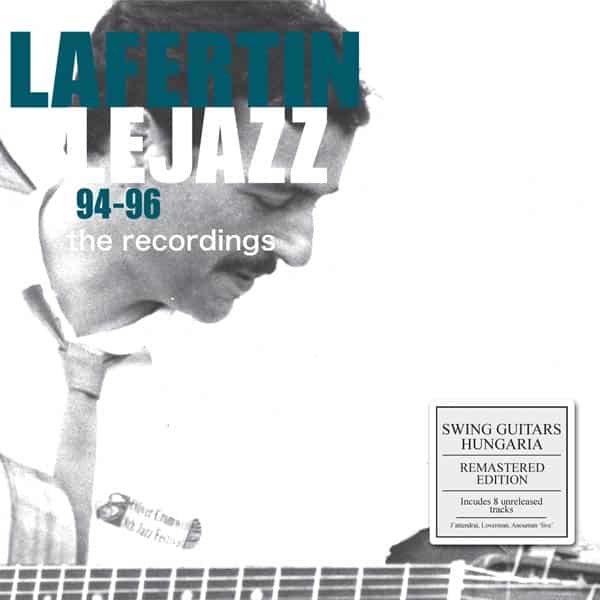
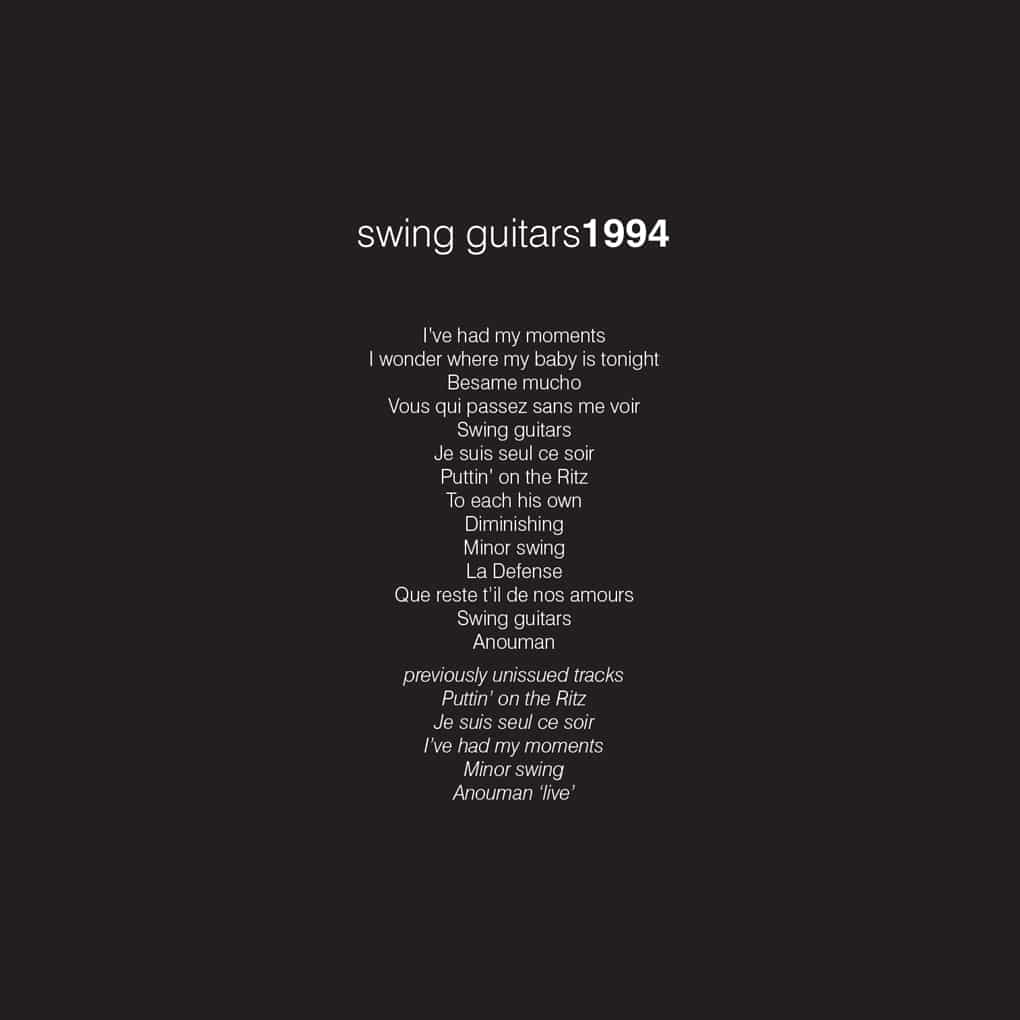
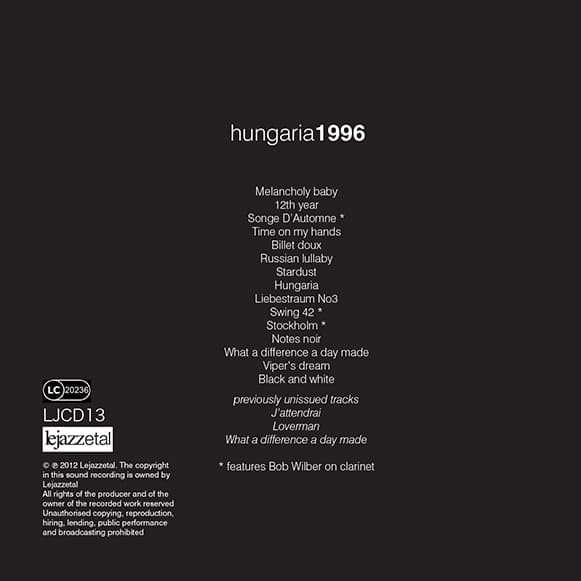
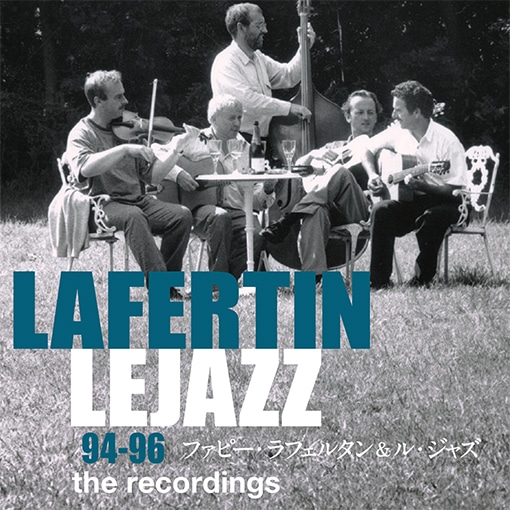
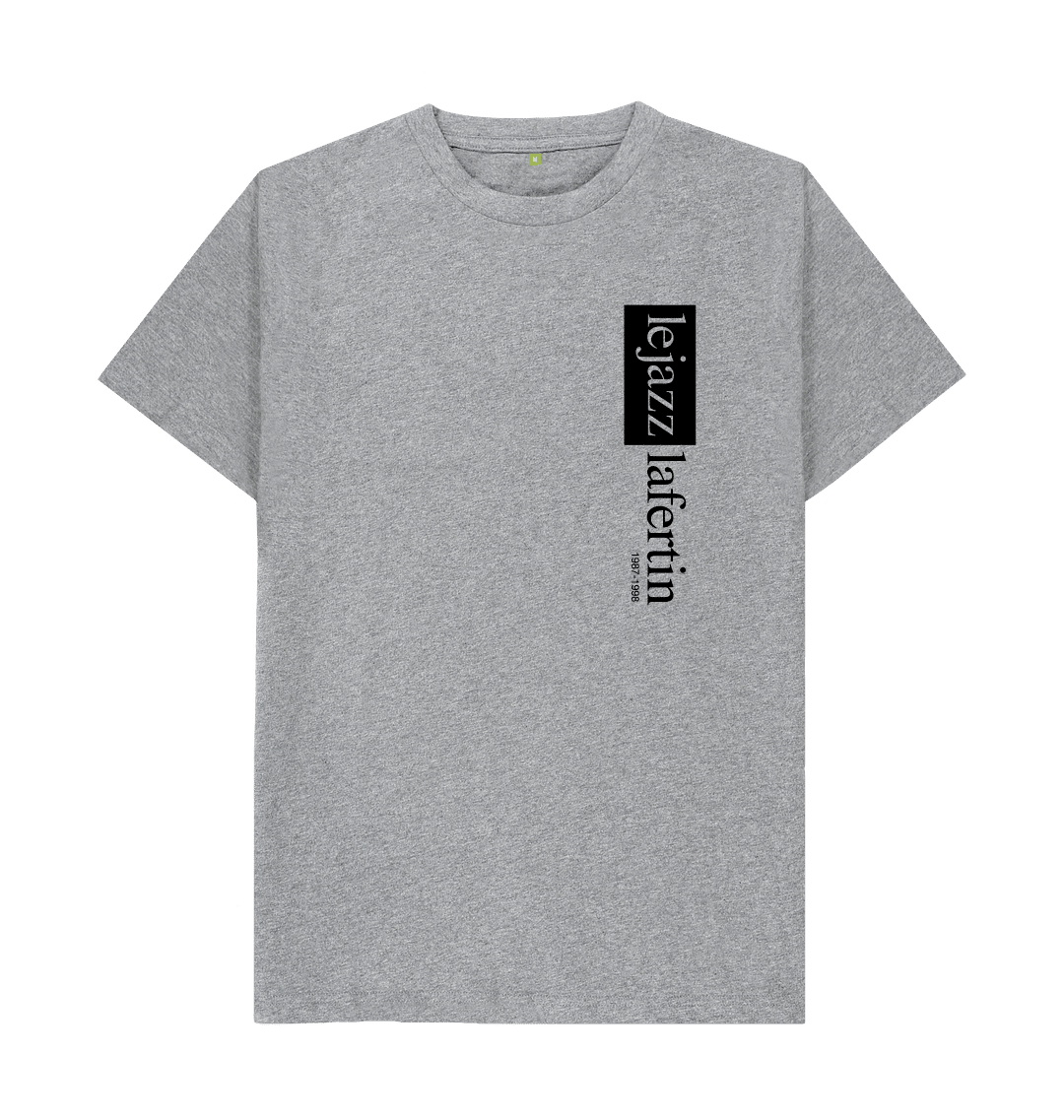
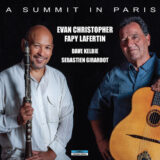
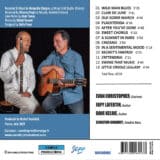
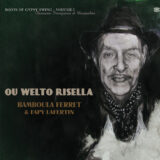
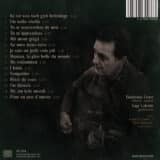
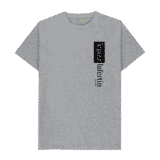

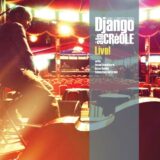
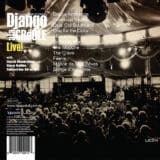
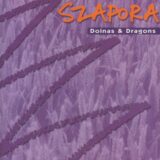
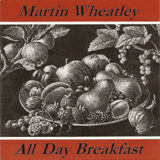
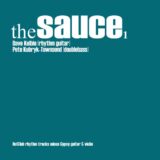
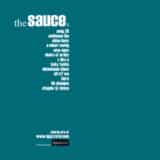
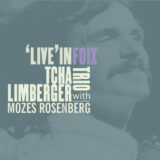
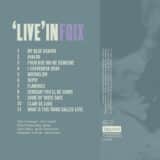
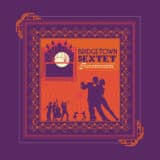
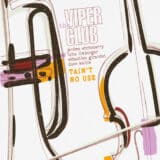
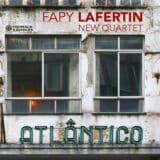
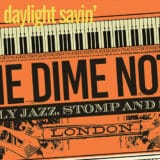
John Orton (verified owner) –
Highly recommended. I first came across Django in the late 60s when one of his LPs was playing before the show at the Everyman Hampstead – main feature Rififi. I’ve loved his music ever since. Fapy Lafertin is brilliant on guitar and Lejazz Qurtet gives him a really solid rythm backing – well produced, good sleeve notes and a first class selection of old favourites and some that were new to me. My personal favourite was Stardust by Hoagy Carmichael – really atmospheric. One comment – not a critiicism – studio recording s do not have the atmosphere you sometimes get with a live performance – this could have been solved simply here by new sensory technology so that when you put the CD on you get the unmistakable whiff of Gitane cigarette smoke!
Barbara Siek (verified owner) –
This is a brilliant 2 CD set of Fapy Lafertin on guitar and his Quartet. I have it playing almost 24/7. Fapy’s music keeps my working day serene but with a witty, edgy twist that only a master on guitar can do. The sound on the CDs is pristine, the packaging beautiful, and the price right. It’s on my list of what to give everyone for the next event. Thanks, Lejazzetal, for a great product. I just placed another order.
Joan Pickens (verified owner) –
A masterful collection of pure, lovely, and inspiring cuts. It’s a completely satisfying experience listening to Fapy’s lively, playful and perfectly-executed guitar playing, with his solid, responsive quartet. Recorded in wonderful monophonic tone, really sets the mood of the old recordings and makes it a wonderful, transcendent listening experience. And if that weren’t enough, thank you for sharing films from this recording session on the world wide web. It is a real treat to see the master at work… cigarette smoke, rooster crowing, and all… beautiful and timeless. I’m all smiles!